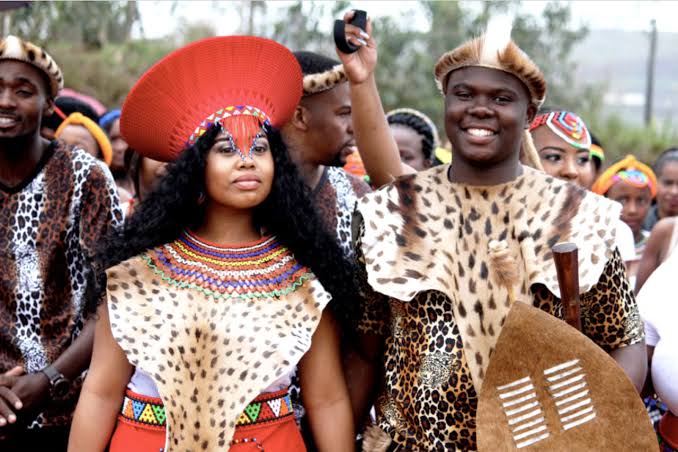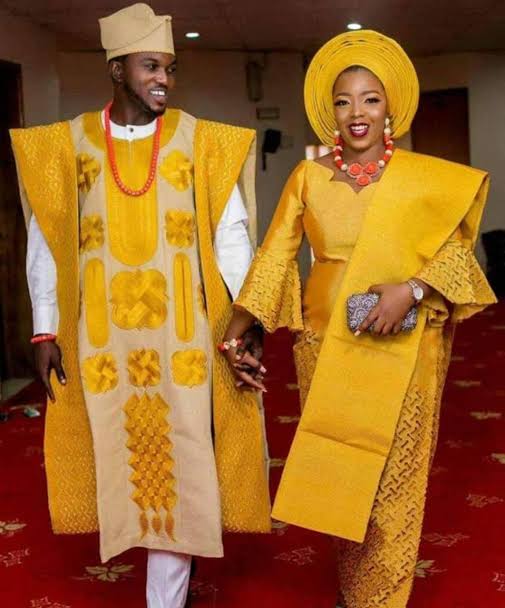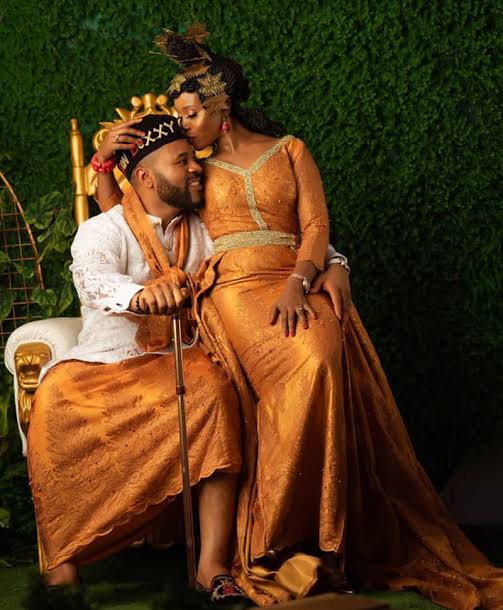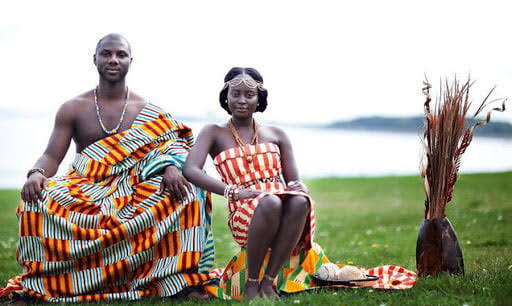The Knocking Ceremony
It is a common practice around the world to ask for a girl’s hand in marriage. Many African wedding ceremonies cannot move forward without this step. For some ethnic groups in Ghana, the name of this ritual is “knocking on the door” or ‘kokoo ko’. The groom, together with his family on a special prearranged night and “knocks” on the door of the bride’s house. Once they are let in, they present gifts such as wine for libation, money, and kola nuts to the bride’s family. They then announce their intentions, and discuss the prospects of joining the two families through marriage. If everything goes well, the bride comes in to give her final consent as to whether or not she wants to marry the man. Marriage preparations begin as soon as she gives her approval. Various African communities have different ways of performing the knocking ceremony. In Nigeria, the Yoruba calls it “Mo mi i mo e” (know me and let me know you). The Agikuyu community in Kenya calls it “Kumenya Mucii”(getting to know the home).

The Engagement Ceremony
African wedding traditions Igbankwu engagement. Marriage in African traditions is a union between two families, not just two individuals. That’s why an engagement ceremony, which is often also a dowry (bride price) payment ceremony, is very important. Those ceremonies bring together the whole family, and allow each side to get to know each other.
Bride price is still widely practiced remains a crucial part of many African wedding traditions. In the past, bride price was a guarantee of sexual fidelity and premarital female virginity. It was also a way for the groom to demonstrate that he was a good provider, who would take good care of the bride.
The ceremony differs slightly from country to country. In Burkina Faso, the Moaga tribe calls it “Poug PousSôm” or PPS for short. On this day, the groom’s family goes to the bride’s family to offer the “negotiated” bride price. This can be in the form of money or animals, cereals, kitchen utensils or clothes. Everyday consumer goods like kola nuts and dolo (millet beer), or services (fieldwork, repairing huts, etc) are also commonplace.
During the ceremony, the sisters and girlfriends of the bride jokingly hide some items from the groom’s family such as shoes. They then require money to return the items. This is done to show the groom and his family that they cannot “snatch” their friend or sister so easily from the family. After the PPS, cohabitation is socially accepted, though there’ll usually still be a religious or civil wedding. Each community in Africa has its own way of celebrating the engagement ceremony. In Kenya, the Agikuyu community calls it “Ruracio”, while in South Africa the Zulus call it “Lobola”.

Kola nut Offerings
Kola
nuts play an important part in many West African wedding traditions. The caffeine-packed nut grows on a big tree, in tropical forests in West Africa. It is often used for medicinal purposes. Kola nut is also a symbol of healing, respect, hospitality, and unity.
In the Gambia, if a man sees a woman he wants to marry, he first sends a kola nut as greetings and declaration of his proposal. If it is accepted, representatives of the man’s family meet with the girl’s family. They decide on the dowry, which is then followed by a date for the “breaking of the kola nut” (marriage). The traditional wedding ceremony ends with the breaking of the kola nut. It is then shared among relatives and elders. Other African communities that include kola nuts in their wedding traditions are Nigeria, Ghana, Sierra Leone, and Liberia.

The Henna Ceremony
African wedding traditions of henna application
An American or European bride would go for a spa treatment before the big day. An African bride has a pampering day as well, with a little twist. In various communities around East, West, and Northern Africa, the brides and her female companions have a “henna ceremony/party” several days before the wedding ceremony.
Among the Swahilis in Kenya and Tanzania, this celebration may take from two days to a week. It often involves a lot of rituals such as bathing and putting perfume on the bride, hairdressing, and body decorations with henna. Female family members and friends can also partake in this ritual by applying henna on various parts of their bodies such as arms, legs, and feet. This ceremony is usually accompanied by songs and prayers for the newlyweds. Advice is given to the bride by older family members, and this part of the ceremony is very emotional. In Niger, the Hausa and Tuaregs communities also apply henna to symbolize purity and fertility.
